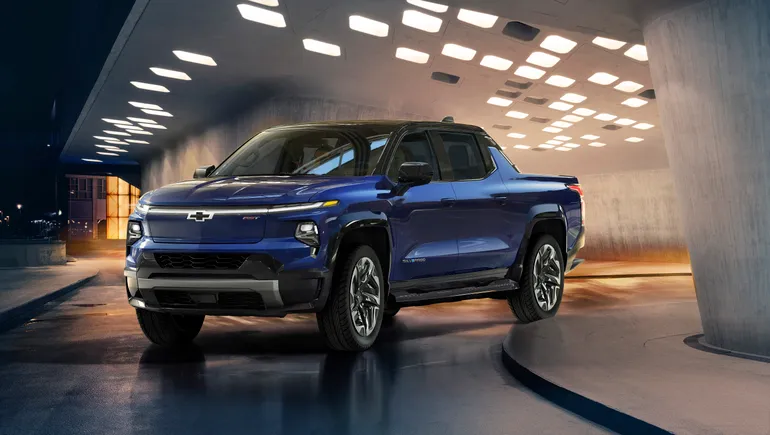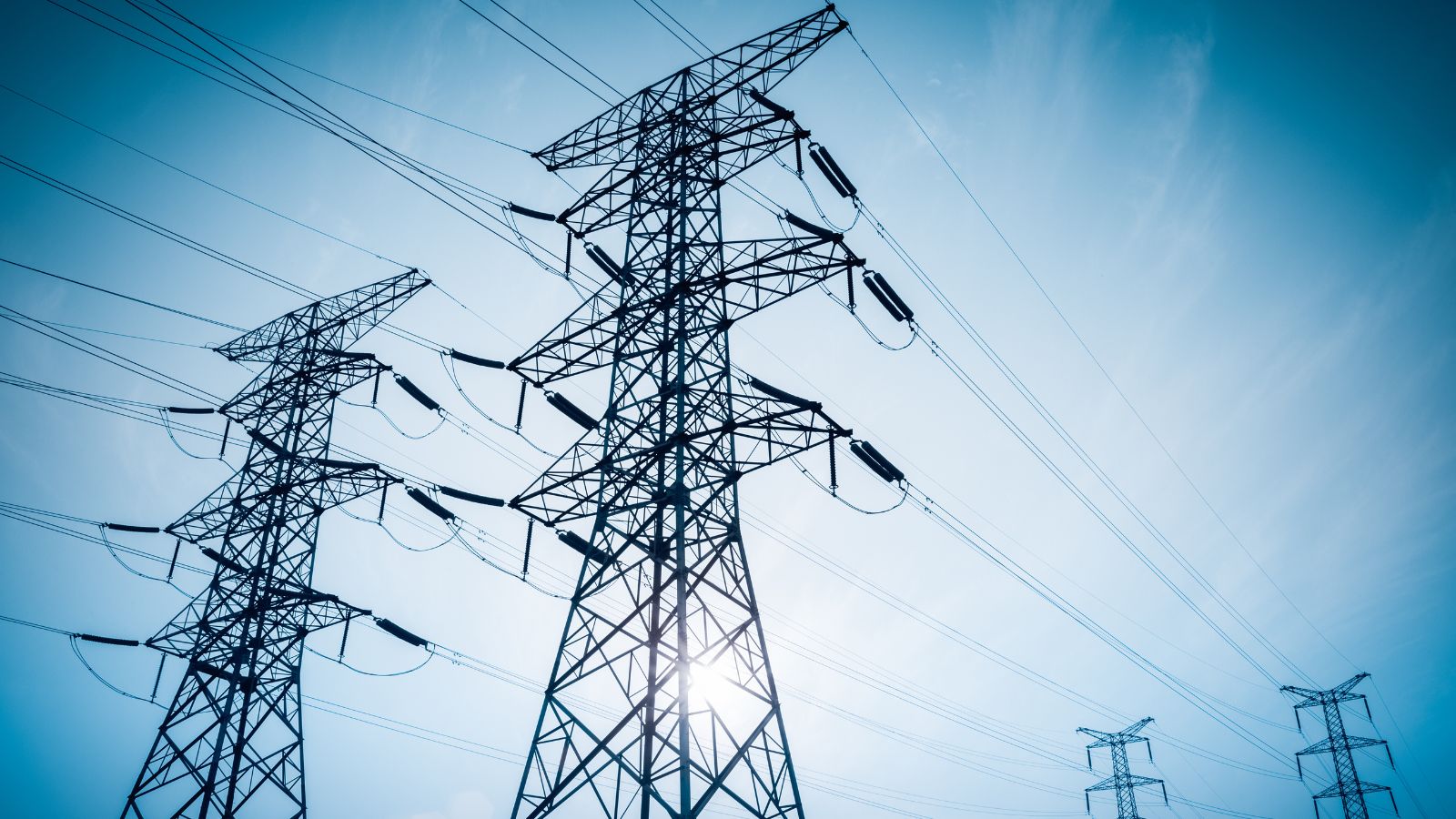I dont think we need to bother, this will fad will fade like the rest of them as even the supporters are seeing...
'Despite the growing popularity of electric vehicles (EVs),
they haven’t captured the hearts of all drivers yet. We break down the 13 disappointing reasons behind the slow adoption rate, from the high upfront costs and concerns over battery life to the inadequate charging infrastructure and the environmental impact of battery production...As we explore these hurdles, it becomes clear that while EVs offer a promising solution to reduce emissions and dependence on fossil fuels, significant challenges remain in making them the preferred choice for every motorist.
EVs Battery Production Is Bad For The Environment
The production of electric vehicle batteries raises environmental concerns due to the mining of lithium, cobalt, and other minerals, which can lead to habitat destruction, water pollution, and carbon emissions. Ethical issues around cobalt sourcing further complicate matters.
Despite these challenges, the situation is improving with advances in recycling and ethical sourcing practices. Moreover, the lifetime environmental benefits of EVs, such as lower greenhouse gas emissions compared to traditional cars, often outweigh the initial ecological impact of battery production.
Efforts to develop batteries with less harmful materials are also underway, promising a more sustainable future for EVs. This progress reflects the industry’s commitment to reducing the environmental footprint of clean transportation.
EVs Use Electricity That Is Produced With Fossil Fuels
Critics argue that electric vehicles (EVs) are less eco-friendly because they use coal and natural gas electricity.
However, the energy sector is increasingly shifting towards renewables like solar, wind, and hydro, making EVs greener over time. Even when charged on a grid that uses fossil fuels, EVs are still more efficient and emit less over their lifespan than traditional cars, thanks to their efficient electric motors.
As clean energy becomes more common, EVs’ environmental benefits will only grow, solidifying their role in cutting global emissions. This trend underscores EVs’ importance in the move towards sustainable transportation.
Gas Cars Perform Better
The capabilities of modern electric vehicles challenge the perception that performance is synonymous with the roar of a gas engine. Initially, EVs might have been likened to golf carts, focusing more on efficiency than power, but today’s electric cars overturn that stereotype.
Today’s EVs, including sporty cars and SUVs, are equipped with advanced electric propulsion systems that offer instant torque and remarkable acceleration, making them competitive with, and often superior to, traditional gas-powered vehicles in everyday driving scenarios.
High-performance EVs from brands like Tesla and Porsche can outpace many gas-powered supercars in zero-to-60-mph tests, showcasing their impressive capabilities. While it’s true that EVs may not reach the extreme top speeds of some specialized gas-powered cars, this difference is hardly relevant for regular driving, where legal speed limits and practicality prevail.
EV’s Are More Expensive
Electric vehicles are pricier upfront compared to their gas-powered counterparts. Most people are very price-conscious and get spooked at the higher upfront costs. However, they could be more cost-effective in the long run. Despite the general increase in vehicle prices, EVs offer savings through lower operational costs.
Electricity, the “fuel” for EVs, is cheaper than gas, and these vehicles are designed for efficiency, meaning the cost per mile is significantly less. Additionally, EVs boast minimal maintenance needs. Costs are further reduced with fewer mechanical parts and no need for regular fluid changes.
For instance, the Chevrolet Bolt almost eliminates maintenance expenses for up to 150,000 miles. On top of these savings, owning an electric vehicle could also qualify you for a tax rebate of up to $7,500 in the U.S., making some EVs ultimately cheaper than traditional gas vehicles over their lifespan.
EVs Will Catch On Fire
The perception that electric vehicles pose a higher fire risk has been influenced by a few widely reported incidents and recalls. Yet, vehicle fires are far more common with gasoline cars, occurring daily due to crashes, but they rarely gain significant media attention because of their frequency.
EVs utilize lithium-ion batteries, similar to those in laptops and cell phones, which do carry a risk of fire, but such incidents are rare. The concern over our electronic devices catching fire is minimal, demonstrating a contrast in public perception of risk.
Gasoline, known for its highly flammable nature, is handled with caution, underscoring the inherent fire risks associated with traditional fuel that are often accepted as a part of daily life. This comparison highlights a disparity in safety concerns, suggesting that the fear surrounding EV fires may be disproportionate to their actual risk compared to conventional gasoline vehicles.
EV’s Take Too Long To Charge
Charging an electric vehicle takes longer than refueling a gas car, and this spooks people because they are used to going to the gas station whenever they are running low. However, most EV charging occurs overnight or during other downtimes, rendering the longer charging times inconsequential for daily use.
The primary concern arises during road trips, yet the situation is improving as public charging technology advances. Charging speeds can vary, but strategically placed chargers along popular routes allow drivers to use waiting time productively, such as for dining or shopping, without needing to monitor the charging process.
Furthermore, the advent of DC fast-charging stations means some EVs can gain hundreds of miles of range in just 15 to 20 minutes, significantly reducing wait times and making electric travel more feasible and less time-consuming.
There Are Not Enough EV Charging Stations
Charging an electric vehicle at home is definitely the most cost-effective and convenient option. However, not everyone has the luxury of home charging all the time. For those individuals, access to public charging stations becomes critical before committing to an EV.
The availability of EV charging infrastructure has significantly improved in recent years, thanks to concerted efforts by various companies. Places like California, which follow the California Air Resources Board’s standards, now boast a higher density of public chargers. While some regions may still lag behind, major travel routes across the country are increasingly being equipped with charging stations. Additionally, many hotels, businesses, and even gas stations are beginning to offer EV charging facilities.
For EV owners with home charging capabilities, the reliance on public chargers is minimal, making daily use straightforward and convenient. When it comes to longer journeys, the expanding network of public chargers means that with a bit of planning, finding charging stations along most routes is becoming easier, ensuring a smooth and worry-free travel experience for EV users.
EV’s Don’t Have Enough Range
The notion that electric vehicles lack as much range as gas cars is true but it is also becoming outdated. Many of today’s models boast ranges of 250-300 miles or more, with advancements continuously extending these limits.
Such ranges allow most EV owners to charge their vehicles just once or twice a week, similar to the frequency of visits to the gas station for traditional cars. For instance, the Chevrolet Bolt exceeds 250 miles per charge, and models like the Hyundai Ioniq 6, Kia EV6, and Ford Mustang Mach-E offer options that surpass 300 miles.
Luxury vehicles, including the Lucid Air, can achieve ranges of over 500 miles. While some EVs still offer lower ranges and may not be suitable for regular long-distance travel, they can be ideal for city driving and could serve as economical second vehicles for those with alternative options for longer journeys.
Electricity Is Expensive To Charge EVs
Charging an electric vehicle (EV) at home will indeed raise your electricity bill, but it’s significantly more cost-effective than relying on public fast-charging stations or purchasing gasoline. Even with gas prices as low as $2 per gallon, home charging offers substantial savings, particularly if done during off-peak hours to take advantage of lower rates.
Electricity costs do vary by state, but even in areas where electricity is priciest, it remains over 50% cheaper than gas. For those driving short-range EVs or covering fewer daily miles, the increase in the electric bill might be barely noticeable.
The cost to charge a long-range EV increases with mileage, yet it still presents a stark contrast to the expenses associated with gas vehicles. For example, the Environmental Protection Agency (EPA) estimates the annual cost to charge a model like the Tesla Model 3 at around $550, whereas fueling a gas-powered car such as the BMW 3 Series can exceed $2,000 annually. This comparison highlights the long-term financial benefits of EV ownership, emphasizing the efficiency and economy of electric driving.
The Batteries Need To Be Replaced, And They Are Expensive
While it’s true that electric vehicle (EV) batteries don’t last indefinitely and replacing a large battery pack can be costly, often reaching tens of thousands of dollars when out of warranty, this concern is somewhat mitigated by the longevity and warranty coverage of modern EV batteries.
Despite the growing popularity of electric vehicles (EVs), they haven’t captured the hearts of all drivers yet. We break down the 13 disappointing reasons behind the slow adoption rate, from the high upfront costs and concerns over battery life to the inadequate charging infrastructure and the...

greenbuildingelements.com






